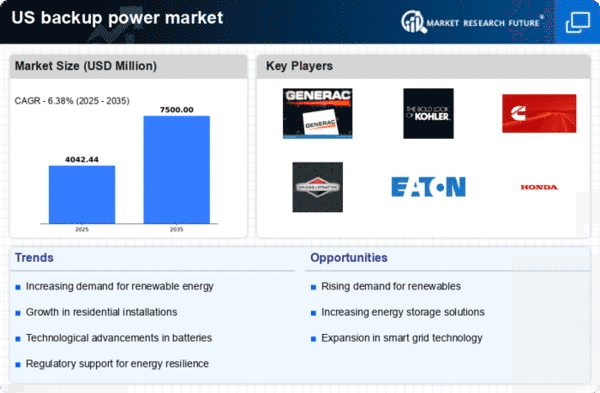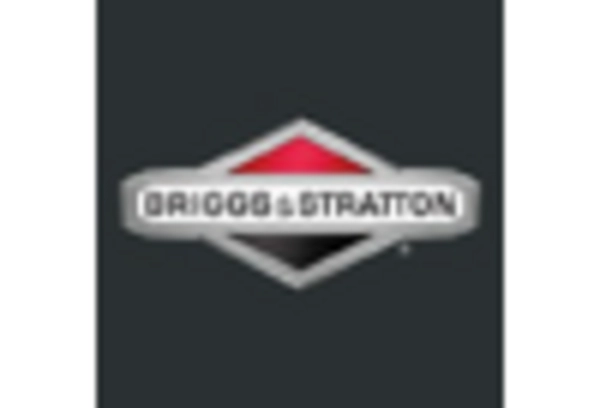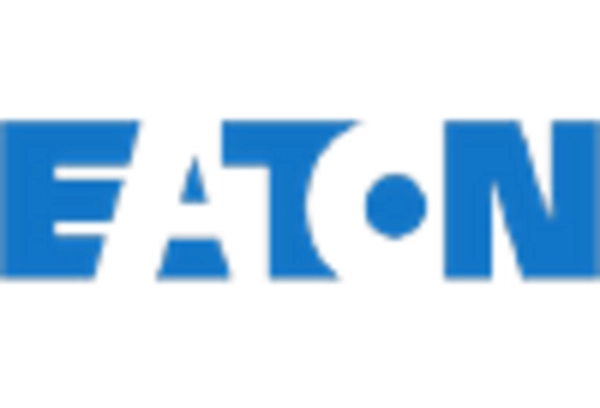Regulatory Support and Incentives
Regulatory frameworks and incentives play a significant role in shaping the backup power market. Various state and federal policies are being implemented to encourage the adoption of backup power systems, particularly renewable energy sources. For instance, tax credits and rebates for solar-powered generators are becoming more common, making these systems more financially accessible. The US government has also set ambitious goals for reducing greenhouse gas emissions, which indirectly supports the backup power market by promoting cleaner energy solutions. As regulations evolve, businesses are likely to invest more in backup power systems that comply with new standards, thus expanding the market. The interplay between regulatory support and market dynamics suggests that the backup power market will continue to grow as stakeholders adapt to changing policies and seek to leverage available incentives.
Rising Frequency of Power Outages
The increasing frequency of power outages in the US is a critical driver for the backup power market. According to the US Energy Information Administration, the number of outages has risen by approximately 30% over the past decade, prompting both residential and commercial sectors to seek reliable backup solutions. This trend indicates a growing awareness of the need for uninterrupted power supply, particularly in areas prone to severe weather events. As a result, the backup power market is witnessing heightened demand for generators and battery storage systems. The urgency to maintain operations during outages is compelling businesses to invest in backup power solutions, thereby driving market growth. Furthermore, the potential for financial losses due to downtime is pushing organizations to prioritize backup power systems, which are increasingly viewed as essential infrastructure rather than optional investments.
Growing Awareness of Energy Security
The growing awareness of energy security among consumers and businesses is a pivotal driver for the backup power market. As energy sources become more diversified, the need for reliable backup systems is increasingly recognized. This awareness is particularly pronounced in sectors that are critical to public safety and economic stability, such as healthcare and finance. The potential risks associated with energy supply disruptions are prompting organizations to invest in backup power solutions to safeguard their operations. Market Research Future indicates that nearly 60% of businesses are now prioritizing energy security in their operational strategies. This shift in mindset is likely to propel the backup power market forward, as stakeholders seek to mitigate risks associated with power outages and ensure continuity of service.
Technological Innovations in Energy Storage
Technological innovations in energy storage are transforming the backup power market. Advances in battery technology, such as lithium-ion and solid-state batteries, are enhancing the efficiency and reliability of backup power systems. These innovations are not only improving performance but also reducing costs, making backup power solutions more accessible to a broader audience. The market for energy storage systems is projected to grow significantly, with estimates suggesting a compound annual growth rate (CAGR) of over 20% in the coming years. This growth is indicative of the increasing reliance on backup power systems, particularly in residential applications where energy independence is becoming a priority. As technology continues to evolve, the backup power market is likely to benefit from enhanced product offerings that cater to diverse consumer needs.
Increased Adoption of Smart Grid Technologies
The increased adoption of smart grid technologies is significantly influencing the backup power market. Smart grids facilitate better management of energy resources, allowing for more efficient integration of backup power systems. These technologies enable real-time monitoring and control of energy usage, which can optimize the deployment of backup power during outages. The US government has invested heavily in smart grid initiatives, with funding exceeding $7 billion in recent years. This investment is expected to enhance the resilience of the energy infrastructure, thereby increasing the demand for backup power solutions. As smart grid technologies become more prevalent, the backup power market is likely to experience growth driven by the need for systems that can seamlessly integrate with advanced energy management solutions.
















